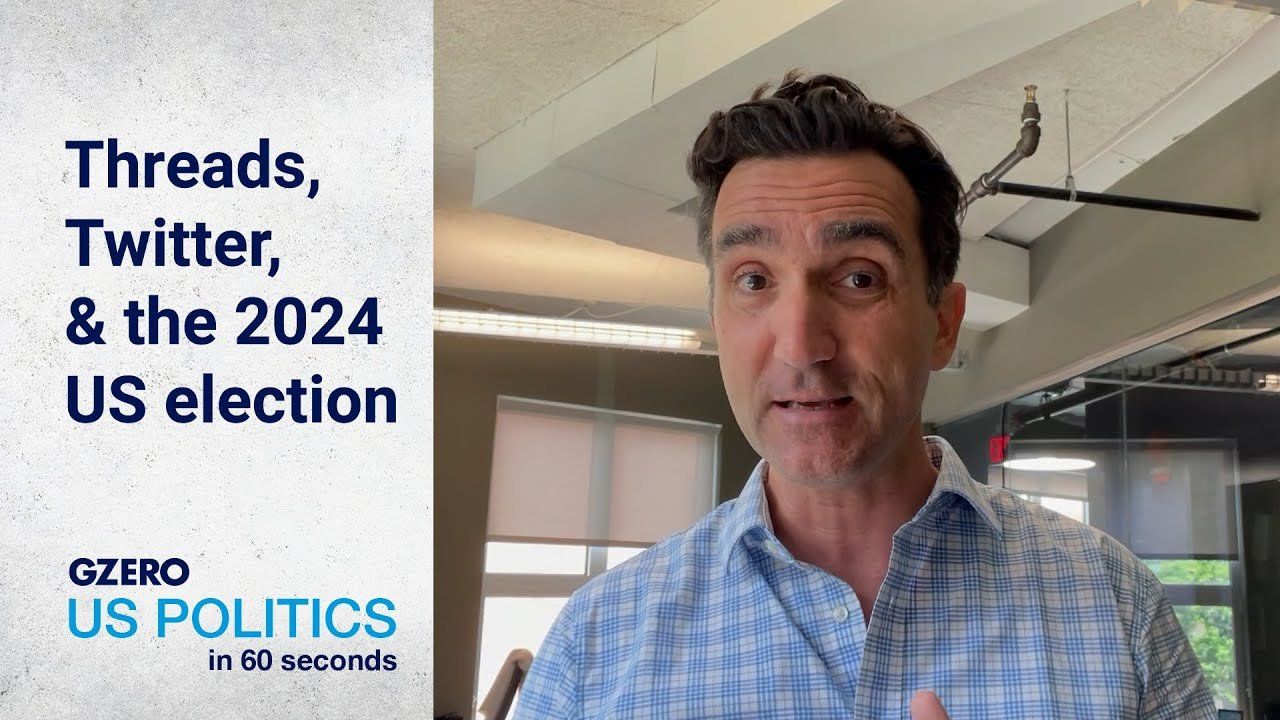
Jon Lieber, head of Eurasia Group's coverage of political and policy developments in Washington, DC shares his perspective on US politics.
Hi, I'm Jon Lieber, and this is US Politics in (a little over) 60 Seconds.
Meta last week announced the launch of Threads, a direct competitor to Twitter that reportedly already has reached a hundred million signups, a huge number in just a week. This long-awaited move by. One of the kings of social media could dramatically alter the media environment heading into the 2024 election.
Twitter is enormously popular and important in the political and media world in the US, but has increasingly become a source of consternation and stress for highly engaged political users, particularly those on the left, after the takeover of the platform by Elon Musk, who has pursued what has looked at times like a bizarre and at least partially ideological strategy to upend Twitter's content moderation rules, and in his personal feed, highlighted tweets that troll liberals and promote conspiracy theories. Other competitors to Twitter, like Mastodon or Bluesky, have not achieved mass reach necessary to pose a serious threat to Twitter's dominance of the online media ecosystem, while others like Truth Social remain niche corners of the Internet.
Other outlets like Telegram have grown in importance, but do not provide the open platform of the more dominant social media apps. All of these trends point to the increased atomization of the media landscape globally. In the last 50 years, the US has moved from three dominant national broadcast news networks to a patchwork of increasingly fragmented social media sites with very little gatekeeping and strong, and in some cases partisan, ideological communities.
The launch of a viable competitor to Twitter will accelerate this trend. Meta's content moderation will build off what is learned from managing Instagram and Facebook. This could make it more than just a convening site for people interested in talking about sports and politics, and instead give it a unique appeal for political liberals in the US who don't like where Twitter is going.
That's not to say that conservatives won't be found there too. Even in the height of their concerns about Twitter censoring conservative speech, major conservative figures and writers did quite well on the platform, expanding their reach even as they said they were being stifled. A more fractured online information environment will be even more difficult to moderate than a unified one and provides more avenues for echo chambers and allow politicians to more aggressively micro-target their messages and could render it much more difficult to restrict the spread of disinformation in the 2024 election, especially if Twitter and Threads become the domains of the political right and left, respectively, and if their corporate owners pursue different content moderation policies.
We'd also expect campaigns to start taking advantage of this fractured media landscape, as they have already, targeting different messages to the different audiences on their different channels, making it much more difficult to see what's actually happening on these campaigns as their messages go to increasingly smaller corners of the Internet.
Thanks for watching. This has been US Politics in (a little over) 60 Seconds.